LAST UPDATED: May 26th, 2021
Hunting on public land is free (other than mandatory permits and licenses) and provides the freedom to roam. I’m an advocate for it, but I’m annually reminded that hunting on public lands makes bowhunting for mature bucks harder than it already is.
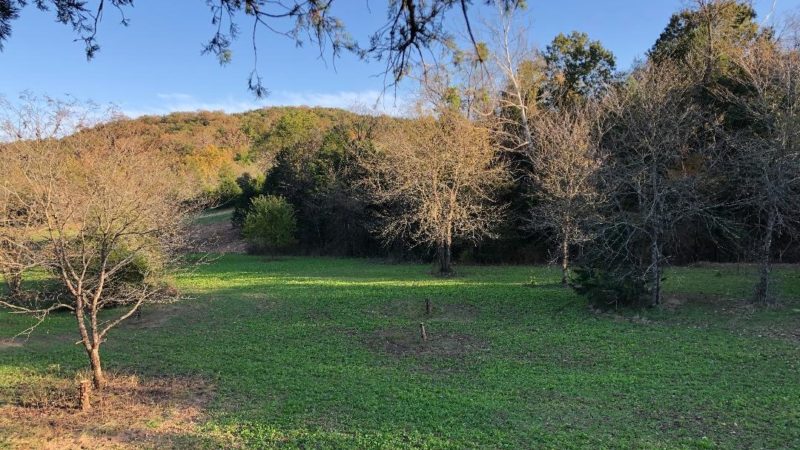
Yes, success gives you a greater sense of accomplishment, but success can be extremely difficult to duplicate season after season due to innumerable uncontrollable factors — cattle, crop rotations, hunting pressure and buck age class are several.
Those points are reasons enough to dream of buying a manicured hunting property where giant-racked bucks have their heads buried deep in lush clover in broad daylight. Better yet, you have the only set of keys to the property’s gate. It’s your property.
Back to reality. For most, this musing never comes to fruition. Why? Many folks feel that, even in their wildest dreams, owning their own hunting property is unrealistic and unattainable. But, is it really?
Assess Your Budget and Make Goals
Everyone has their own financial health, and for some, buying a deer hunting property is unreachable. That’s fine and OK, but don’t write it off for good. Sometimes, you simply need to comb through your finances and determine what’s eating up your budget.
For example, do you really need a new truck and the expensive payment it requires? How about soda, beer, cigarettes, lotto tickets, satellite TV and weekly restaurant meals?
If you can cut some things from your budget, you can start putting away money into a dedicated account for deer hunting property. No, you won’t have a big down payment stashed away within a month, but you’ll begin to see how reachable your dreams can be. Maybe even consider getting a second job to expedite the process. Stay both motivated and goal minded.
Buying Hunting Property vs. Leasing
Securing deer property presents one big question: should I buy or lease?
“I always encourage folks to buy,” Isaac Whalen, a real estate professional with Whalen & Company of Cynthiana, Kentucky, said. “For deer hunters, buying has so many advantages over leasing. You’re the owner. You determine what you do, when you do it and how you do it.
“In contrast,” he continued, “leases can be subject to restrictions or approvals in order to improve the land for hunting. A given property can also have multiple leases. Sure, you have the hunting rights leased, but a farmer could be leasing the farming rights, or a rancher could be leasing cattle rights.”
“Either could largely impact your hunting. I believe 100 percent that purchasing is best if you want the best possible deer hunting. Plus, real estate is arguably the best investment one can make. As far as I know, God isn’t increasing the world’s land mass (laughs), and land is in high demand.”
Jon Massie, an agent with Midwest Land Group, also believes that purchasing is best, but certainly doesn’t overlook leasing’s benefits.
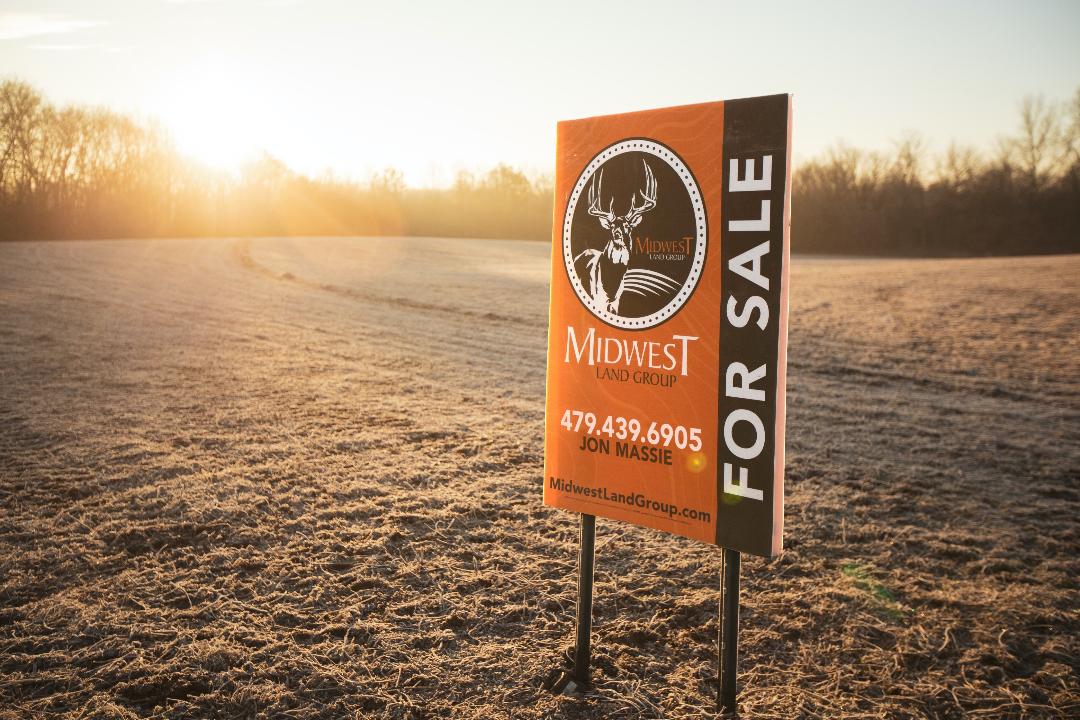
“Personally, I buy property but also do a lot of leasing,” he told. “Leasing smaller tracts that are spread out puts me into more and different types of antler genetics. It increases the odds of having mature deer, or in some cases, mega-deer, to hunt. The downside is that leases have limitations as to what you can do on them.
“For that reason, buying can be highly beneficial,” Massie continued. “You have the freedom to make your own decisions. Plus, you’re in it for the long haul. Leases come and go constantly, but buying a property means it’s yours until you sell it.”
What Makes a Good Deer-Hunting Property?
Obviously, not every hunting property is equally tailored for great hunting.
“Before I show a client any properties, I determine their price range,” Whalen said. “Then, I can narrow down the potential listings to a manageable number. I typically show my deer hunting clients secluded properties that are surrounded by some farming practices. Acreage is also important. Larger acreage gives you more control and management capabilities.”
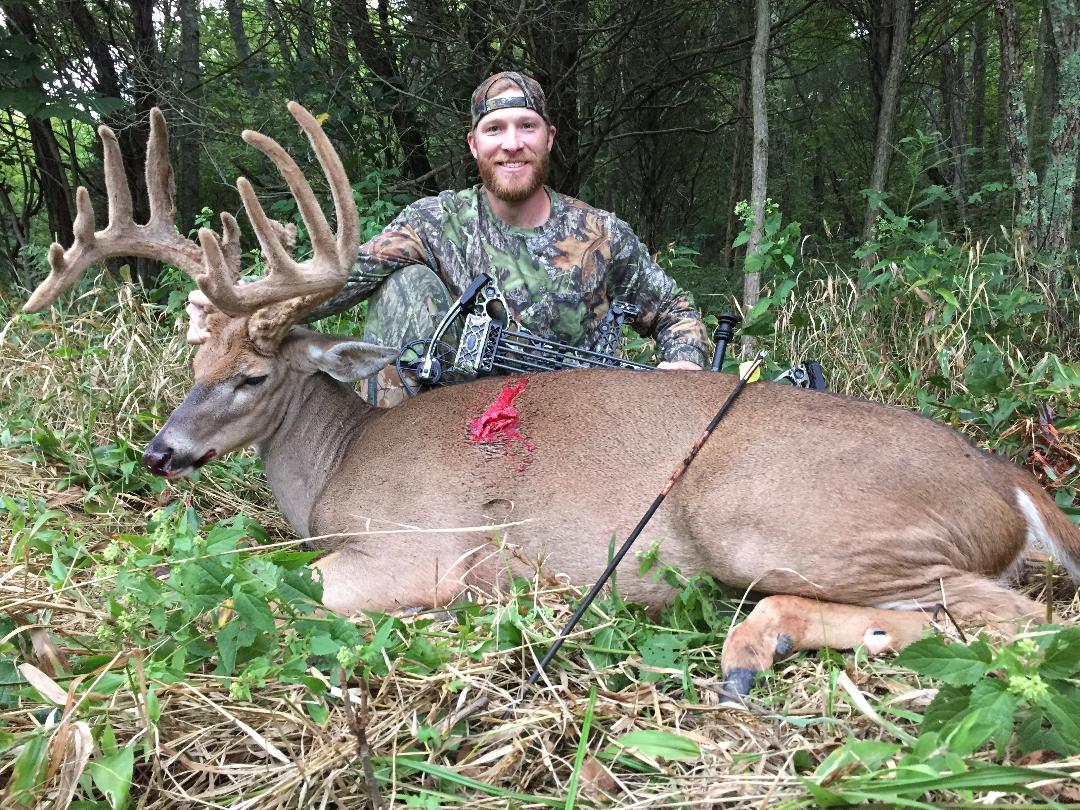
“If you want to harvest bucks selectively, you must be willing to put the money down and get the property that offers the best potential,” Whalen continued. “Optimal land will have water, cover and food. Also, make sure it hasn’t been extensively logged within the last 15-20 years. You want to have plenty of oaks, if applicable to your area, dropping acorns, especially if you’re unable to plant food plots.”
Massie argued that access is the number-one element to consider when hunting for the best property.
“I begin by assessing the property’s entry and exit points,” he said. “I also study the topographical features related to them. I need to know how much of the property is accessible without spooking deer. It does no good to buy a 500-acre farm where reaching the best hunting location requires me to walk through three quarters of it to do so. Access must allow minimal human impact. That’s number one.
“Also, consider how much of the farm is huntable,” he continued. “Perhaps multiple draws create swirling winds and virtually aren’t huntable. Why buy 500 acres if I can hunt only 100 acres of it effectively? Instead, use your budget to purchase 100 acres that are spectacular. Of course, finding the perfect property isn’t easy, but you can certainly make improvements later. Still, always try to get the biggest bang for your dollar.”
“Soil conditions are also important,” Massie added. “Is the soil on a given property conducive to planting food plots, or is there solid rock ¼ inch beneath the surface? There are soil maps available or you can do soil tests. I also assess the timber and determine what mast crop I can expect. Natural foods and vegetation are huge components to good deer property.”
Lastly, Massie considers surrounding properties. Are adjoining parcels 5-, 10- and 20-acre tracts, or are they 250- and 500-acre tracts? He believes that larger surrounding parcels are better for trophy potential because they mean fewer hunters are in the vicinity, which reduces buck harvest, hunting pressure and potential for trespassing.”
“I study the deed information on onX Hunt for the surrounding landowners,” Massie said.
“Sometimes the property owners reside halfway across the country, which usually indicates that they rarely visit the property. Translated, that means less human activity transpires in the immediate area, which is highly positive for my property’s hunting potential. Sometimes, that adjoining property can even be leased, which increases your hunting acreage.”
Consider Creative Financing
An important concept that Brandon Turner presents in “The Book on Investing in Real Estate with No (and Low) Money Down” discredits the mindset of “I can’t” and changes it to “How can I?” As it relates to purchasing real estate, this concept opens the door to a world many don’t understand or even know about: creative financing.
A land contract, also known as seller financing, is an alternative way to finance a property if you don’t have a big down payment. If you find a landowner who’s selling their property, ask if he or she will consider selling via land contract.
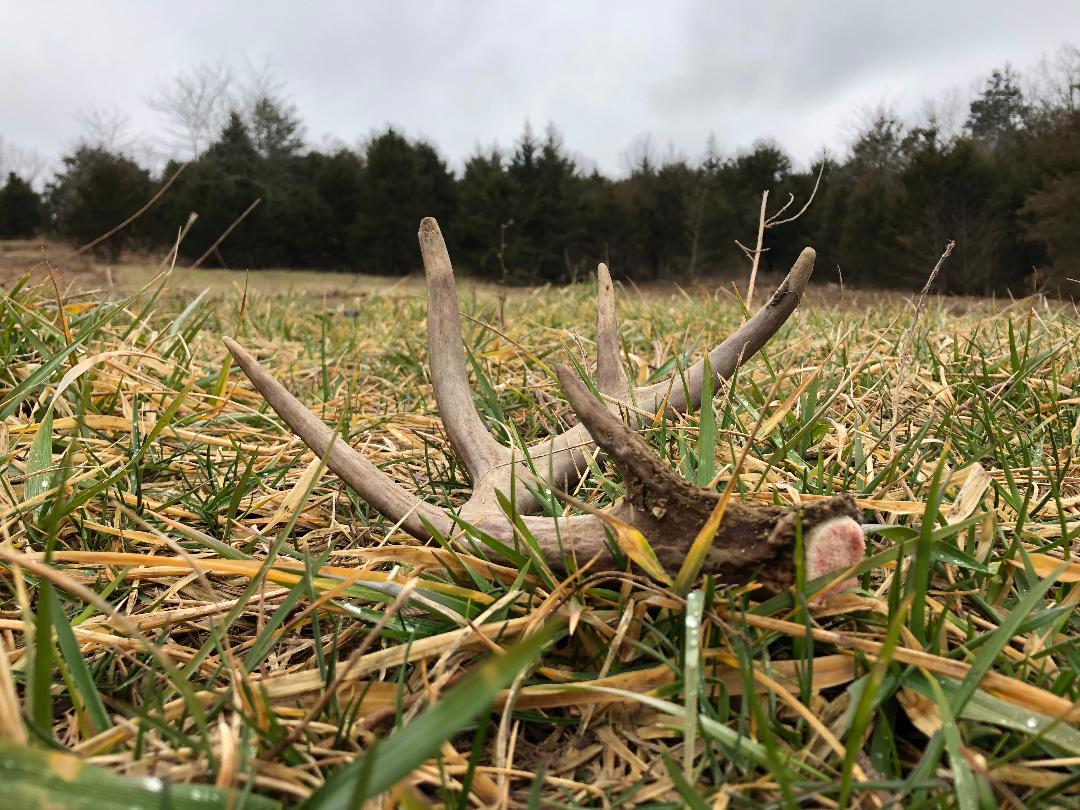
In this scenario, they essentially become your bank. You get the benefit of buying the property with a lower down payment and closing faster than with a traditional mortgage.
The landowner gets the benefit of making interest, typically at a higher percentage than bank rates.
For example, my investing partner and I purchased a rental property via land contract at a 7 percent interest rate with only 10 percent down. At the time, current bank rates were around 4 percent.
We didn’t string out all of our liquid assets (cash), and the owner was able to sell the property and also make money on interest. In other words, both parties won.
“I run into many clients who’re just starting out and desperate to own their own hunting land but can’t get traditional financing,” Whalen said. “Certainly, land contracts are usually the easiest bet if you can find a seller willing to offer one. There are risks, of course, for both parties involved, but if each party upholds their end, it can work well.”
Massie informed that buying recreational real estate isn’t the same as purchasing a home.
“Many people don’t understand that getting a loan for hunting property is different than a conventional home loan,” he said. “Expect to pay 20 percent down. I suggest interviewing three different lenders. All lenders can offer different things. Begin with the bank you’ve done business with your entire life. The second could be some type of farm bank or credit union. The third could be any random bank. The idea is the find the best deal.”
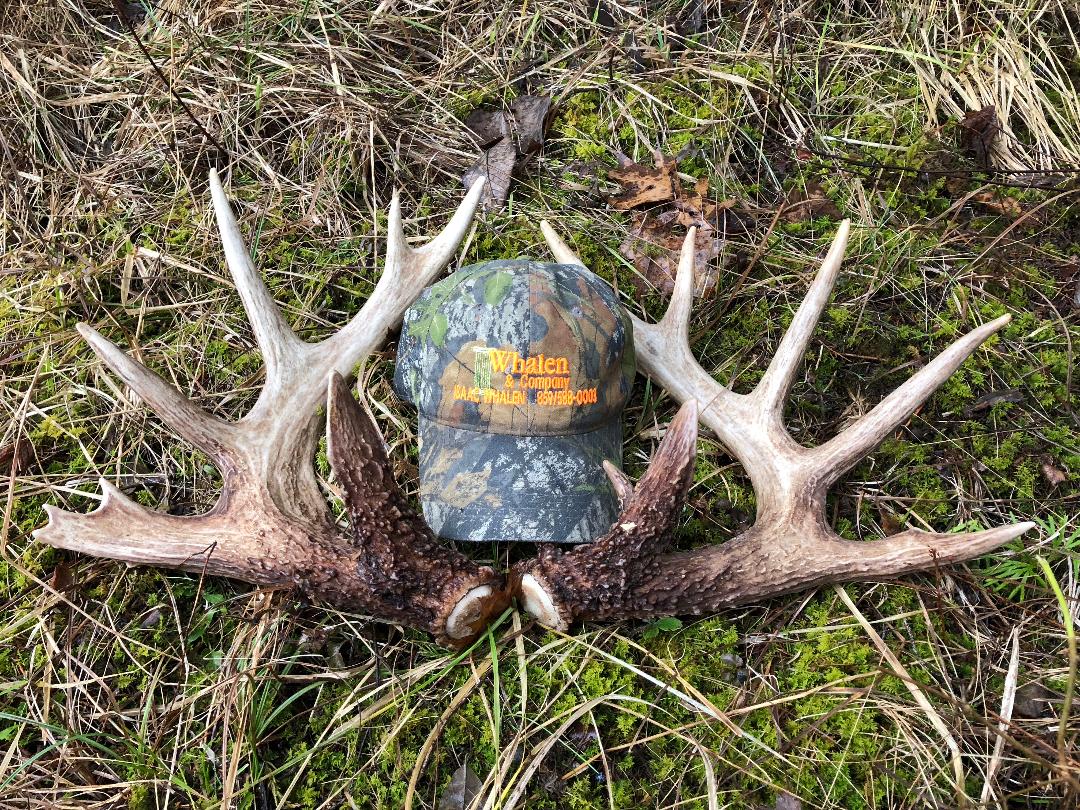
Whalen shared a few more ideas.
“There are government programs available for smaller or younger farmers, but they usually have farming-practice requirements,” Whalen said. “Some require you to grow hay or alfalfa. My wife and I actually have honeybees, and we’re able to turn that in as a profit or loss, depending on the yield, at tax time. Even a few head of cattle are recognized as a minimum farming practice.
“FSA loans provide up to 100 percent financing, which allows you to acquire property with no money down,” he continued. “You have to provide reports on what things you’re doing to improve your property at tax time, which involves some bookkeeping. However, it’s well worth the effort.
“Local lenders such as Farm Credit and Ag Credit offer creative ways to purchase recreational land,” Whalen shared. “It’s like a conventional loan but with a lower down payment of 5-15 percent. That said, if you’re buying a $200,000-300,000 farm, getting in the door with a lower down payment is highly beneficial.”
Make Your Hunting Property Pay for Itself
Probably the most overlooked aspect of owning your own deer-hunting property is making the land pay for itself or at least generate some income.
“Depending on the type of property,” Whalen said, “there’s potential to do selective timber harvest to generate money for paying off the property. Even the red cedars here in Kentucky can be harvested and sold as posts. Once harvested, that area could then be leased out as cattle pasture for per-acre pay. If you have hayfields, chances are a local farmer will pay to cut, bale and use the hay. Those are just a few ideas.”
Selling hunts is Massie’s favorite way to generate income from his properties.
“I sell turkey hunts on my hunting properties to help pay for maintenance and planting food plots,” he shared. “Turkey hunts go for $800-1,500 each. If you take 8-10 guys each spring, that’s a sizable amount of money that can help pay off your farm faster. It depends on the size of your property, but you could also sell one deer hunt for a management buck. Of course, know the guiding and outfitting regulations in your state before you do this.
“You could split the lease or property purchase with a couple of buddies to make it more affordable, but I find that relationships can be ruined, especially when everyone is too involved,” he continued. “It’s best to have one guy over everything. I’d maybe lease ground with buddies, but I don’t think I’d ever purchase property with friends because I don’t want to risk severing relationships.”
Buy Your Hunting Property Today
If you’ve been dreaming of having your own deer-hunting property to manage, continue dreaming, but start taking steps toward achievement. If it means getting a second job or unsubscribing to satellite TV, be willing to make sacrifices. Before you know it, you could have the keys to the gate of your very own deer-hunting property.

 By
By 



